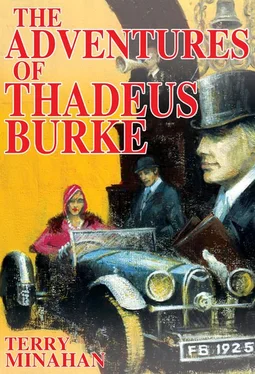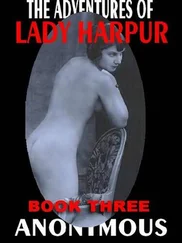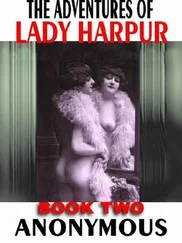It was nearly lunchtime and Thadeus suggested that they should partake of a beer and sandwich at The Lamb, as soon as he had completed a draft slip on which he was working. Thadeus handed his papers to Beth Bateman, who had started work at Burke & Co a couple of days before, and was now manning the secretary’s desk while Ethel had taken an early lunch. The two girls were not happy that they alternated at lunchtime as it meant that they were unable to take meals together. Thadeus promised that when Miss Mills and Mr Emery arrived on the Monday of the next week the situation would be reconsidered. What he really meant was that it would become Miss Mills’ problem, not his! What the firm really needed was a proper ‘office junior’ but they could not afford one at this time. The present staff expansion had pushed Thadeus’ budget to the limit.
‘What’s the problem?’ asked Thadeus, as they settled on a pair of stools at the bar with their beer, awaiting the ordered sandwiches.
‘There are two problems which may possibly be related,’ informed James. ‘You know some of the facts about the site in Essex, but I will just reiterate the exact position, by way of background. My father was offered a contract by the transport company for work on their buses. Frankly the contact came through a friend of Dad’s, with whom he used to work, but Dad gained the contract on merit. He was not the only engineer seeking the job! My uncle, Dad’s brother-in-law, works for the War Office and was able to inform Dad about this disused airfield that was being sold, so Dad was able to make an offer, agree a price and pay a deposit within an hour of the information appearing in the newspapers.’
James paused to sup his beer and ask Thadeus if he had any questions. Thadeus said that he might have questions later, but for James to kick-on with the story for the moment. Thadeus had thought of asking James whether his father was an old Etonian, but he held back any criticism of a nepotistic nature saying simply, ‘Let us attend to the problems!’
‘The first problem is with the bank. Dad has an account with the Co-operative Society Bank. He has banked with them since he left school. He has always been a prudent saver. The business, Pooley Motors Ltd, also have their account with the Co-op; I should mention that Dad is of a socialist persuasion, not involved in politics at all, but definitely “on the left”. He feels that the Co-op is the people’s bank! The land will cost £3,800. Dad has £500, in cash, in the bank. The company also has assets, machinery and tools. The bank agreed to advance £3,000, leaving Dad to find another three hundred. Now, suddenly, they say that in view of the current economic climate, general strike looming, etc. they have been forced to reconsider the loan and can only advance £1,000 pounds.’
For a moment it looked as though tears might swell in James’s eyes.
‘What is the second problem?’ said Thadeus quickly.
‘Dad’s friend is under pressure to cancel the work contract because Dad employs non-union workforce.’
At this point tears did swell into James’ eyes.
‘Pull yourself together James,’ instructed Thadeus. ‘It is just a “two-pipe-problem” instead of a quick gasper.’ With this remark Thadeus lighted the match that he had been holding between his fingers for over five minutes, and applied the flame to the bowl of his silver-topped Calabash.
James smiled and lighted a cigarette.
‘Union membership, tell me about that,’ ordered Thadeus.
‘Dad used to be a union member, but now that he has his own business he is not even eligible for membership. He has an apprentice, aged fifteen, who is also not eligible. The only problem is Philip, the mechanic who has been working with Dad for about six months. He has a strong aversion to unions. When he was demobbed from the army, which is when Dad first met him, he worked as a bus driver. He was newly married and they had a baby child; they now have two. Anyway when the first baby was small Philip was given a local bus route, the number 63 that runs from Forest Hill to Peckham, via OHHhhhhhHonour Oak and Nunhead. I do not suppose you know much about bus routes?’ questioned James.
‘It is a vehicle and enterprise that has escaped my studies,’ admitted Thadeus.
‘Generally bus drivers work shifts; the early shift starts work at about five o’clock in the morning and the late shift does not finish until about midnight. Local busses, like the 63, operate during the daytime only. So it was very convenient for Philip, leaving home at a reasonable hour and always home in time for dinner. After a couple of weeks on this job Philip was moved to a different route, one of the long routes that runs right across London, and needs early and late shifts. The reason was that as he was a new man the job should go to a longer serving employee. The man who got the job replacing Philip was the brother of the trade union steward! Atkins was his name, and Philip thinks that he is behind this problem. Philip does not trust any trade unionist.’
‘I can see that it is all a bit of a worry, James,’ said Thadeus, ‘but let us look at the options. One, Philip must join the union. Which one is it – the Transport and General Workers, or the Engineer’s Union?’
‘Either, I think,’ responded James. ‘It was the T&G that he belonged to at the bus garage.’
‘Then he must join the Engineers,’ instructed Thadeus. ‘It is always useless to harbour a grudge; the “grudgor” is the one that suffers, not the “grudgee”. He can resign when this problem is out of the way, if he thinks that it is really necessary. Point two, we must find another bank. We will go and see my own manager at Coutts & Co this afternoon. If he cannot help us, he will know somebody who can.’
‘I am sorry to be putting all this on to you,’ apologized James.
‘I love problems! I suppose you thought that the two incidents might be related because the Co-op and the trade unions both sponsor Labour parliamentary candidates. There might be a link. We must investigate!’
The sandwiches and drinks having been consumed the two men returned to their office.
Thadeus made a telephone call to Gerald Parker at Coutts and arranged to meet him, with James Pooley, at 3.30 pm that afternoon. He then gathered up the papers and newly typed slips from Ethel, who had replaced Beth at the secretary’s desk, and made his way to the Lloyd’s Underwriting Room.
The work proved simple, underwriters just loved office blocks in West London, even if the premium rates were a bit thin! He was back in the office by 3.15, leaving plenty of time for a leisurely stroll through the alleys to Lombard Street.
An elegant young lady, who placed their bowler hats in a cupboard, escorted them into Gerald’s private office. James placed his umbrella in a stand himself; the young lady smiled, but appeared to be devastated by the deprival of this duty. Thadeus had the good manners to hand his umbrella directly to the charming female, who gave him an appreciative nod of the head.
Gerald rose from his chair and quickly approached the two men with his hand outstretched. Greetings were exchanged and introductions made.
Gerald was in his mid-thirties, elegantly attired in a full frock coat and high collar, the required habiliment of the bank. Had Thadeus been aware of this meeting while at his matutinal preparations he would have been similarly attired. The lounge suit that he wore that day put him, he felt, at a distinct disadvantage in the forthcoming negotiations.
James outlined the proposed purchase of land in north Essex, describing the old airfield site. The area to be bought by Mr Pooley senior was about two-thirds of the original operational airfield; the other one-third, the eastern side, was to be used by the local council for a new industrial estate, an area where local businesses could be established without interfering with the plans for the nearby towns. Work had already commenced on the site.
Читать дальше












